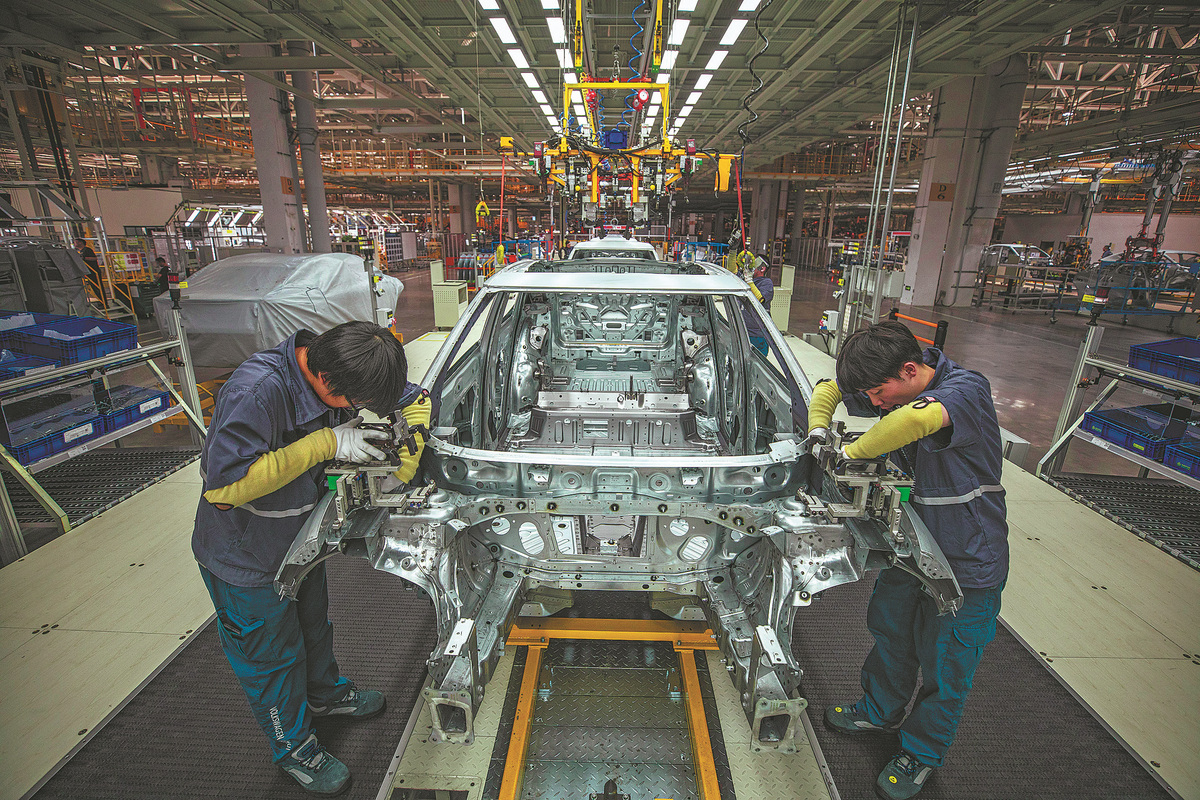German firms to beef up localization


Nearly 40 percent of German companies said they plan to accelerate their localization in China, in the wake of recent trade conflict escalation between the United States and China, a survey by the German Chamber of Commerce in China said on Wednesday.
A report based on a survey of 143 German companies operating in China found that 86 percent of respondents have been affected by the latest US trade measures toward China. In particular, 93 percent of German automotive firms' businesses in China have been affected, according to the survey that was released by the chamber in Beijing.
For industries, 36 percent of the surveyed companies are involved in machinery and industrial equipment, while others are in automotive, mobility, electronics, logistics, and plastic and metal products.
Besides plans to strengthen localization in China, other firms are monitoring the situation or looking into other sourcing markets as an alternative to the US, the survey found.
German firms' investment intentions in China remain solid, however. In the next two years, 7 percent of respondents said they plan to strongly increase their investments in China, up 2 percentage points over last year. Besides, 43 percent of respondents said they plan to somewhat increase their investments in China, down 4 percentage points over last year.
Meanwhile, German election winner Friedrich Merz has been sworn in as Germany's new chancellor. German companies operating in China have called for a more hands-on approach from the new government toward China.
Those approaches include promoting an active and informed engagement with China, and improving China's image in Germany, said Oliver Oehms, executive director and board member of the German Chamber of Commerce in China-North China, during a news conference in Beijing.
China had been Germany's largest trading partner for eight consecutive years until 2024 when US replaced China to become Germany's top trading partner, according to German Federal Statistical Office.
Germany stands as China's largest trading partner in Europe and an important investment destination, the Ministry of Commerce said.
At the annual meeting of the China Development Forum in March, executives from major German companies such as Mercedes Benz, BMW, Bosch, and Deutsche Bank expressed their willingness to increase investment in the Chinese market.
The automotive industry has been a highlight of Sino-German economic and trade cooperation.
China's Commerce Minister Wang Wentao met with Hildegard Muller, president of the German Automotive Industry Association, in late April, and Wang said China and Germany have a solid foundation for cooperation in the automotive industry, with German automakers having served as "witnesses, participants, and beneficiaries" of China's reform and opening-up.
China's door will only open wider, and the country's policies on utilizing foreign investment have not changed and will not change, Wang said.
"Given the pressure of US tariff policies, it is necessary for countries around the world to accelerate economic and trade cooperation with those outside of the United States, and achieve diversified trade layouts," said Zheng Chunrong, director of the German Studies Center at Tongji University.
zhuwenqian@chinadaily.com.cn




































